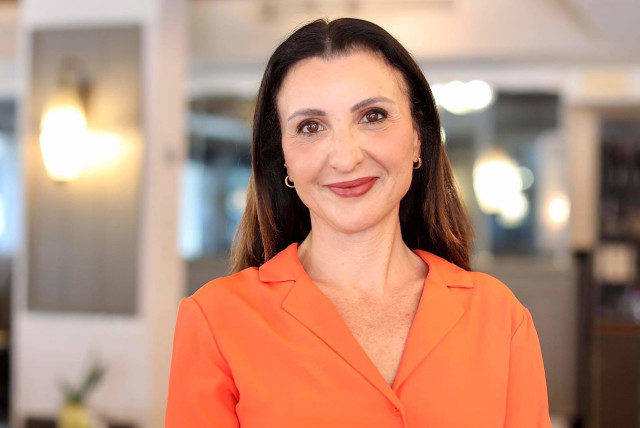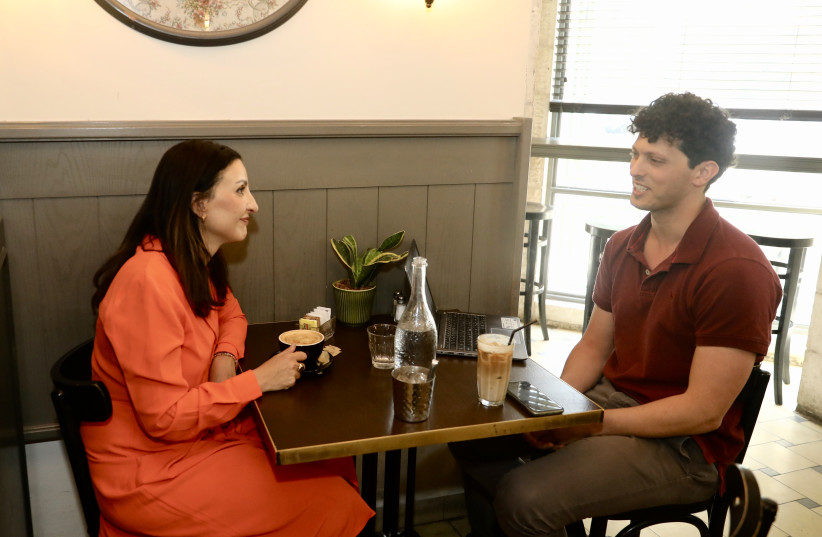Netanyahu cases 'falling apart', Anglo Likud primary candidate says - interview

Likud primary candidate Fleur Hassan-Nahoum spoke in an interview about Netanyahu, per platform and what olim in Israel need.
The bribery, fraud and breach-of-trust cases against Likud leader and former prime minister Benjamin Netanyahu are falling apart, and show that politicians should have immunity from criminal investigations while in power, Deputy Jerusalem Mayor and Likud primary candidate Fleur Hassan-Nahoum said in an interview with The Jerusalem Post.
“In most democratic countries, there is some sort of immunity for prime ministers, president or parliamentarians, not to let politicians do whatever they want, because the minute you become a public servant or the head of government, you are an automatic target for people who want to pull you down,” said Hassan-Nahoum. “They can’t pull you down in the polls, so there’s another way of pulling you down – by throwing mud and hoping it sticks.
“When you look at where the Netanyahu cases stand today, they’re practically falling apart,” she argued. “The proper thing that Israel should have done is wait until he finished office and then prosecute him, a proposition known as the ‘French law.’
“It’s not to protect criminals, it’s to protect leaders from being politically targeted by the judiciary and other elements in society.”
Who is Fleur Hassan-Nahoum?

Hassan-Nahoum was raised in Gibraltar in a Sephardi family. Politics run in her blood. Her father served as the longtime chief minister of the small protectorate. A lawyer by training, Hassan-Nahoum immigrated to Israel in 2001 and has lived in Jerusalem ever since. She served, among other positions, as executive director of a nonprofit organization dedicated to caring for abused Jewish children who fled the former Soviet Union, and founded an international strategic communications firm.
In 2016, she became a member of the Jerusalem City Council, and in 2018 was appointed deputy mayor and received the tourism, economic and foreign affairs portfolios. During her tenure, she spearheaded Israeli-United Arab Emirates business partnerships following the signing of the Abraham Accords in August 2020. She also launched a rescue tourism plan when incoming tourism ceased due to the corona pandemic, which succeeded in bringing hi-tech into the capital.
Hassan-Nahoum is running in the Likud’snational primary for a slot reserved for women. The Likud rules say that No. 25 on its list must be a woman who has never served as an MK or minister. Hassan-Nahoum is running against 10 other women, but there are a number of factors in her favor.
According to Hassan-Nahoum, she is the only one to have held public office. Second, not only does she have six years of municipal experience, but this experience was gained in Jerusalem, a stronghold of Likud voters. Third, her personal background gives her a unique vantage point.
“I’m kind of a rare bird here because I’ve got the Anglo [perspective], but then I’ve kind of also got a Sephardi [perspective],” she said. “That makes me unique in the sense that I can use that mixture for the good of my country.”
Finally, Hassan-Nahoum believes she may be able to help the Likud bring in votes from the opposition.
SHE SAYS the political system in Israel completely ignores the Anglo minority, which she defines as people whose mother tongue is English. According to different estimates, there are as many as 350,000 such Israeli citizens, some of whom may be planning on voting for an opposition party – but they are unsure.
“I’ve spoken to so many Anglos who were undecided, and if they had a candidate that they could identify with, I could pull them back into the Likud, which in any case is the natural place for the Center-Right, [or] Right. This is why I decided to run. I’m not pretending that I’m going to be the key to unblocking this, but I could be one ingredient in unblocking the kind of 50-50 split at the moment.”
What are her plans for the Knesset?
Hassan-Nahoum has very specific plans for the Knesset.
“I feel very passionate about starting with Jerusalem and then working my way out.”
Her first legislation would involve east Jerusalem. According to Hassan-Nahoum, 85% to 90% of students in east Jerusalem are studying a Palestinian Authority curriculum, “the same curriculum they teach in Gaza. I don’t know if you’ve ever seen a Palestinian school book, but it’s full of glorification of martyrdom, antisemitism, hatred, denial that Israel even exists, and incitement of violence.”
Through the independent school system, Israel is essentially funding 80% [of the budget] “that is teaching them how to hate us.”
The first law she would introduce would forbid the teaching of PA school books in east Jerusalem that preach hatred.
In the same vein, she wants to force the PA to abolish its pay-for-slay policy, in which the authority pays pensions to families of terrorists.
“Why are we demanding and why isn’t every European country, American country, every normal country demanding of the Palestinians to get rid of that law?”
A second issue on Hassan-Nahoum’s radar is improving incentives for entrepreneurs. The current situation involves disincentives and unnecessary regulations that need to be slashed in order to create a more vibrant ecosystem, she said.
The third issue on her agenda is immigration.
“Everybody is very proud of the numbers of olim coming every year, but nobody [mentions] that almost half of them go back. Why do they go back? Because absorption in this country is not well-managed, well-run, and it’s not done strategically.”
"Everybody is very proud of the numbers of olim coming every year, but nobody talks about the fact that almost half of them go back. Why do they go back? Because absorption in this country is not well managed, well run, and it's not done strategically."
Fleur Hassan-Nahoum
Israel needs to take absorption seriously as a strategic asset to the country, and launch aliyah programs aimed at bringing in talented workers in fields where Israel is lacking employees.
Hassan-Nahoum hopes to run a significant committee such as the Immigration and Absorption Committee, or be on the Finance Committee in order to weigh in with her entrepreneurial agenda. In the long-term, however, her sights are set on foreign service.
“Ultimately, I got into politics because I believe that because I didn’t grow up here, because I speak four languages, I can be a very good foreign affairs politician. So ultimately, I’d love to be some type of high-level ambassador or foreign minister. In the short term, I know that I can’t run before I can walk, so I would like a committee that gives me the power to make the changes that need to be made.”








.jpeg)
Comments
Post a Comment